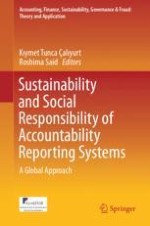
2018 | OriginalPaper | Buchkapitel
1. Cultural Issues and Supply Chain Sustainability of Multinational Companies
verfasst von : Tiziana Russo Spena, Alessandra De Chiara
Erschienen in: Sustainability and Social Responsibility of Accountability Reporting Systems
Verlag: Springer Singapore
Aktivieren Sie unsere intelligente Suche, um passende Fachinhalte oder Patente zu finden.
Wählen Sie Textabschnitte aus um mit Künstlicher Intelligenz passenden Patente zu finden. powered by
Markieren Sie Textabschnitte, um KI-gestützt weitere passende Inhalte zu finden. powered by